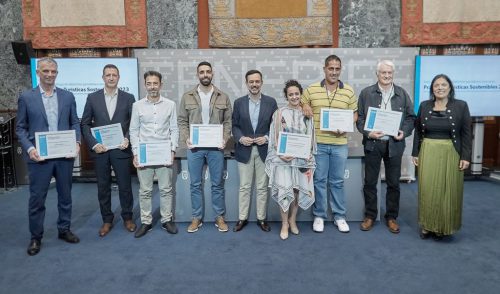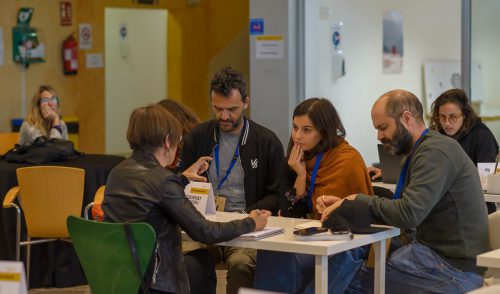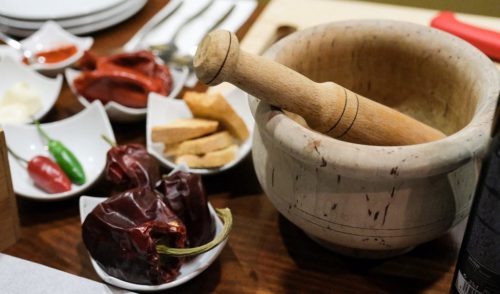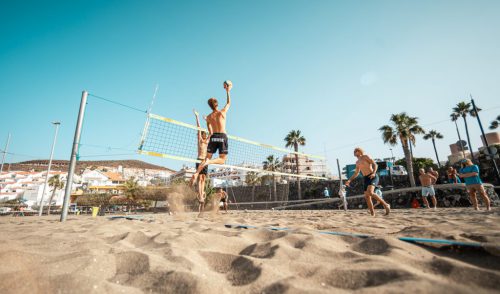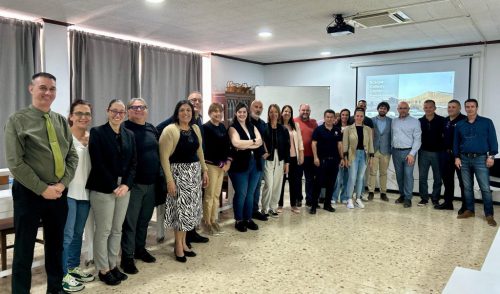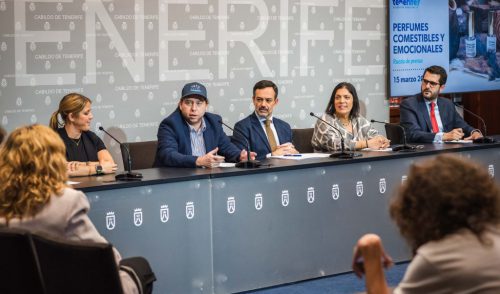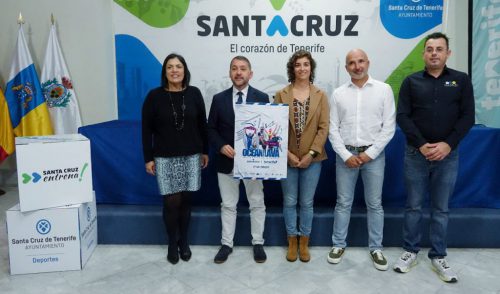Informe semanal de noticias del mercado alemán de la Oficina de Turismo de Tenerife en Fráncfort

- Tour Operator News:
Thomas Cook insolvency – DER Touristik flies back stranded holidaymakers amid hotel payments confusion: As reported in FVW, one of Germany’s leading travel trade media, DER Touristik has successfully organised return travel for nearly all of the 140,000 German holidaymakers left stranded by the sudden collapse of Thomas Cook, but problems with hotel payments are apparently continuing. Germany’s third-largest tour operator was contracted by Cook’s insurance company Zurich to organise return travel for Cook package holidaymakers in destinations around the world. The overwhelming majority of the affected 140,000 customers are now back home, and the remaining 17,000 still at their holiday destination are due to return next week. Over the past week, DER Touristik’s destination agencies have organised travel for Cook customers from Majorca, the Canary Islands, southern Spain, Portugal and the Dominican Republic. This has mostly comprised assisting with hotel checkouts, organising airport transfers from hotels, and helping with airport check-ins. «It’s a question of quick and simple help for holidaymakers,» explained Ingo Burmester, CEO of DER Touristik Central Europe. However, some Cook customers have apparently continued to face demands from hoteliers for payments, even through Zurich Versicherung assured them last week that it would cover 50% of the costs of Cook customers already on holiday. This commitment was made on the condition that hoteliers did not demand individual payments by holidaymakers. But German media and travel agencies have separately highlighted various examples of hotels trying to prevent guests from leaving unless they paid part of their hotel costs. Separately, Zurich has confirmed that Cook customers whose booked holidays have been cancelled might not get a full refund despite the tour operator’s insolvency insurance. As required under German law, Zurich has insured all its tour operator clients, including Thomas Cook, up to the maximum liability sum of €110 million per year. But a company spokesman admitted: «You can assume that this will be nowhere near enough.» The financial impact of the insolvency of Germany’s second-largest tour operator is likely to be far more than this figure, meaning that the €110 million will be shared between creditors (including hoteliers and airlines) and customers.
Cook had about 660,000 advance bookings for package holidays with departures up to September 2020 at the time of its insolvency. Customers generally made an initial payment of 20% of the holiday price at the time of booking.
Aldiana now stands on its own feet: Club provider Aldiana has separated from shareholder Thomas Cook in its day-to-day business and now operates flight purchasing and sales independently, as reported in FVW magazine. In the first days after the Cook insolvency there were irregularities in air transport. Aldiana has had a tough week. The club provider, in which the investor LMEY holds 58 percent and Thomas Cook 42 percent, is not affected by the insolvency. Nevertheless, the company had to re-book the flights of 1500 guests manually. The reason: flights booked via Thomas Cook were partially cancelled by the airlines, because they could not recognize them as Aldiana bookings. This led to delays in individual cases. Aldiana points out on the website that it is not yet clear whether all flight bookings can be made. The club specialist had worked closely with Thomas Cook in flight purchasing and sales until insolvency and had purchased services from Oberursel, where Thomas Cook headquarters are located. Now the flights are booked directly by Aldiana and settled with the airlines. In future, the Aldiana sales team will be exclusively responsible for sales support for the travel agencies. The commissions will continue to be billed directly to the sales partners. Stefanie Brandes, Managing Director of Aldiana, thanks the industry and customers for their support. «Above all, our sales and airline partners have achieved almost the impossible,» she says, «and our cooperation with other tour operators is also closer than ever. Although Aldiana is not affected by the insolvency, there are some difficulties that need to be overcome. «So far, thanks to the tireless efforts of all our employees, this has worked better than we would have thought.
Schauinsland: German tour operator Schauinsland-Reisen managed to generate 2% growth this year amid difficult trading conditions but has made a fast start to bookings for winter 2019/20. According to a FVW interview, he family-owned tour operator will increase revenues by 2% to €1.37 billion in the year ending October 2019 and customer numbers by the same figure to 1.64 million. The company also expects a 2% profit margin for 2018/19. Top growth destinations this year were the UAE (+43%), Maldives (+25), Egypt (+21%) and Turkey (+15%). Owner Gerald Kassner said he was satisfied with the results, which were better than the overall market, given the difficult trading conditions this year. Weak market demand for package holidays, booking shifts to the Eastern Mediterranean and the insolvency of leisure airline Germania all combined to challenge business this year. “It was an intensive year. We have performed extremely well in a difficult market environment and once again showed that our lean structure and quick decision-taking are a real competitive advantage,” he commented. Schauinsland is more optimistic about the forthcoming year and is targeting growth of between 3% and 5%. The winter season has started very strongly with an 11% rise in customer numbers and a high 21% increase in revenues. Long-haul destinations, particularly the Dominican Republic, the UAE, Thailand and the Maldives, are driving growth. Schauinsland is particularly hopeful of a “small comeback” for Spain, its top destination, next summer. The tour operator is expanding its programme for Andalusia with increased capacity on Lufthansa flights to Malaga. Overall, the tour operator has added 200 more hotels for summer 2020 and is targeting younger customers with price advantages and upgrades. There are also cruises on several new ships, including the Aida Mira and the Costa Smeralda.
- Aviation News:
Condor: After TUI, Ryanair is also waving it off: Touristik aktuell, one of Germany’s leading travel trade media reported, that in the search for a buyer for the holiday airline Condor another candidate, who is traded again and again, falls out. Low-cost airline Ryanair shows no interest in taking over the German airline subsidiary of the insolvent travel group Thomas Cook. «We’re not interested in Condor, but only in its customers,» marketing boss Kenny Jacobs told the newspaper «Welt am Sonntag». Already last week Ryanair boss Michael O’Leary rejected a possible entry into the Thomas Cook airline. TUI, the largest travel group, had also declined. After Condor received last week the promise for a state bridging loan in the amount of 380 million euros, airline boss Ralf Teckentrup announced to hold talks with potential investors. As a result, entrepreneur and aviation investor Hans Rudolf Wöhrl publicly expressed interest in joining the traditional airline. According to industry circles, however, the US investment company Indigo Partners has good chances of acquiring Condor. Meanwhile, Lufthansa’s strategy remains unclear. When Condor was first put up for sale in the spring, the Kranich Group made an offer and later interest weakened again. In the end, it was said that Lufthansa wanted to cooperate with the former subsidiary within the framework of codeshare agreements. Lufthansa is not commenting on the Condor currently.
German leisure airline – Tour operators are ready to invest in Condor: As published in FVW magazine several tour operators would be prepared to invest in Condor to help keep the German airline operating long-term following the insolvency of the Thomas Cook Group. The profitable airline has secured legal protection status along with commitments for bridging loans worth €380 million from the German federal government and the Hessen regional government for the next six months and is now in talks with potential investors. The German travel industry has been quick to voice its support for the airline to continue flying as a major competitor to Lufthansa subsidiary Eurowings, TUIfly and other leisure airlines. Condor flies about seven million passengers a year, including one third from Thomas Cook Germany tour operator brands along with smaller volumes from other tour operators such as DER Touristik, FTI, Alltours and Schauinsland-Reisen. Ingo Burmester, DER Touristik’s Central Europe chief, told the DPA news agency that Germany’s third-largest tour operator is not interested in the insolvent Thomas Cook Germany tour operator business. “We have a very well positioned portfolio of brands and products. It doesn’t make any sense just to win volume,” he said. In contrast, he would not rule out a minority stake in Condor. “I cannot imagine a full takeover of Condor. But I would not fundamentally exclude a stake.” However, Burmester said the priority was to retain “an independent, long-term successful airline”. Similarly, Gerald Kassner, head of Schauinsland-Reisen, said that a minority stake in Condor might be a possibility given the importance of the airline as a carrier partner. Kassner already has a 50% stake in small charter airline Sundair. An Alltours spokesman told fvw, that the tour operator was confident that Condor would find a strong investor. But he underlined: “Alltours is currently not interested in a stake in Condor. However, we would not exclude this (step) if necessary.” Meanwhile, the experienced insolvency administrator Lucas Flöther, who has been appointed to oversee Condor’s ‘protection umbrella’ status, said the airline has the chance to secure “a long-term ability to survive”. He explained that, contrary to his role at Air Berlin where he was responsible for selling off assets of the insolvent airline, the question of the airline’s future ownership was “primarily for the Condor management”.
Condor: After Condor Flugdienst GmbH received on September 24 the guarantee from the German government and the Hessian State Government for a six-month bridging loan to the amount of 380 million euros, the airline is still waiting for the approval by the European Commission. Only after the European Commission has taken a positive decision can the loan by German Development Loan Corporation KfW be disbursed. The date for the decision is still to be confirmed. The State guarantee for a bridging loan was applied for in order to prevent possible liquidity bottlenecks at Condor, resulting from the insolvency of its former British parent company, Thomas Cook Group plc. While this period, Condor is still operating and selling as usual. Furthermore, Condor has started this week again regular product and marketing communication, i.e. they announced newly created on-board snacks on all short- and medium-haul flights. Delicious berry smoothies, a Mezete Box and a Natur Break Bowl are available starting from four euros. Tuesday, they launched their support campaign for the breast cancer month October.
- Cruise News:
Hapag-Lloyd Cruises completely dispenses with heavy fuel oil: As published in Germany’s leading news magazine spiegel.de, from July 2020, Hapag LLoyd Cruises will exclusively use marine gas oil worldwide. By voluntarily dispensing with heavy fuel oil, the company is saving considerable emissions. This will reduce the fleet’s harmful sulphur emissions by around 80 per cent. In addition, the switch to marine gas oil means up to 30 percent less soot and fine dust pollution. Hapag-Lloyd Cruises has voluntarily avoided heavy fuel oil in the Arctic since 1993 and uses only low-sulphur marine gas oil. The company had already announced at the beginning of the year that it would gradually switch over to heavy fuel oil and that it would not use it on its expedition fleet in future. This step will now be continued. In addition, all Hapag-Lloyd Cruises’ newbuildings are equipped with modern SCR catalytic converters for the use of shore power. These purify the exhaust gases and reduce nitrogen oxide emissions by up to 95 per cent. The worldwide routes are planned and carried out at an eco-efficient average speed, which means that more than a third less fuel is consumed. In addition, Hapag-Lloyd Cruises’ fleet is equipped with seawater desalination plants for the production of clean water and biological wastewater treatment plants. According to the company, environmentally friendly bio-oils will be used for bow thrusters and stabilizers.

